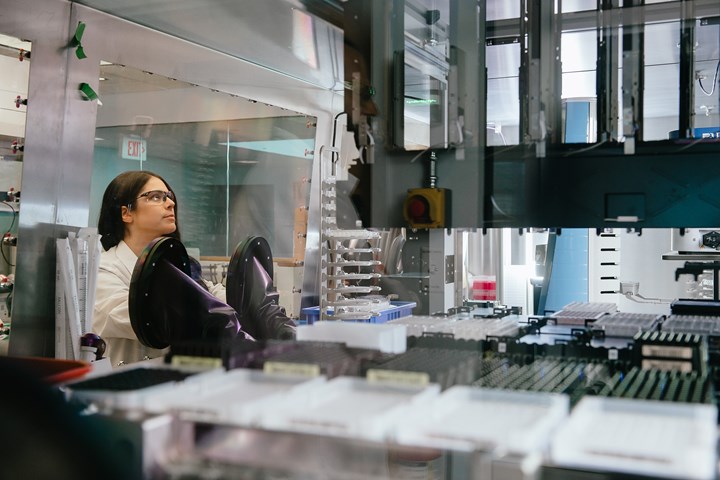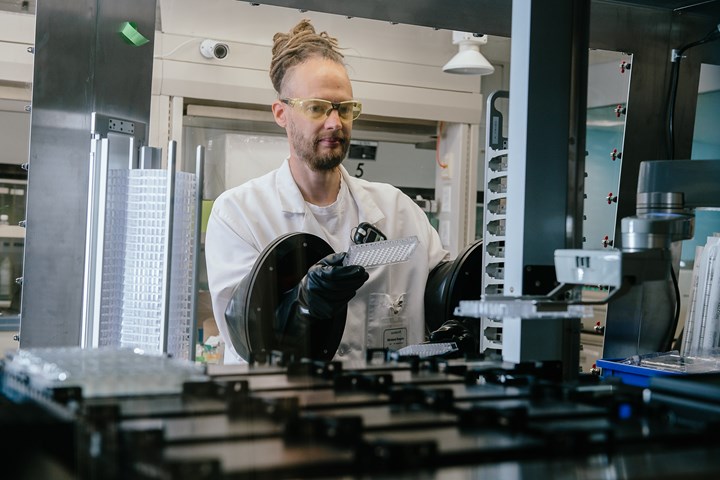LanzaTech Develops Specialized Biocatalysts to Produces Ethylene from CO2 in a Continuous Process
This ‘breakthrough discovery replaces the barrel with synthetic biology, addressing one of the chemical industry’s largest carbon emitters.

Chicago-based , an innovative Carbon Capture and Transformation (“CCT”) company that transforms waste carbon into materials such as sustainable fuels, fabrics, packaging, and other products recently announced it has successfully engineered specialized biocatalysts to directly produce ethylene from CO2 in a continuous process. LanzaTech has previously produced ethylene via the indirect ethanol pathway, taking ethanol produced from carbon emissions and then converting this ethanol to ethylene. However, this latest development bypasses this conversion step in sustainable ethylene production, making the process less energy intensive and more efficient.
This breakthrough in bacterium bioengineering from LanzaTech represents a potential source of advancement towards the company’s mission of replacing fossil-based feedstocks used in the manufacture of everyday consumer goods with waste carbon. In addition to the potential broad reaching implications for global carbon reduction and sustainability, the development represents a significant opportunity for LanzaTech to further penetrate the global ethylene market, which is estimated at approximately $125 billion in 2022.
Around 220 billion lb/yr of ethylene are produced of this most widely used petrochemical in the world, primarily derived from fossil inputs in an energy intensive reaction that releases climate damaging CO2 gas. This development can reverse this paradigm by turning CO2 into a resource from which ethylene can be produced in a continuous, low- temperature, energy-efficient process.
A building block for thousands of chemicals and materials, ethylene is necessary to make many of the plastics, detergents, and coatings that keep hospitals sterile, people safe, and food fresh. Its production process is also one of the largest sources of carbon dioxide emissions in the chemical industry and remains one of its most challenging processes to decarbonize. With increased pressure to find carbon-neutral alternatives to fossil-based feedstocks and fulfill net-zero pledges, chemical companies and manufacturers using ethylene as their primary feedstock are looking for a more robust and sustainable choice in a post-pollution future.

LanzaTech is already a leader in the scale-up and commercialization of gas-conversion biotechnology. The company is also at the forefront of leveraging synthetic biology to precisely engineer specialized gas eating microbes to produce sustainable versions of key chemicals that are currently made from fossil resources. Through synthetic biology, LanzaTech has consistently translated lab-scale developments into commercial scale operations driving the development of solutions for climate change mitigation by designing direct pathways from CO2 and CO, to produce cheaper, less energy-intensive, and more sustainable chemicals. The company believes that this track record will now extend to the production of ethylene.
Said LanzaTech CEO Dr. Jennifer Holmgren, "Ethylene production is one of the three largest carbon emitters in the chemical industry. Now is the time to break free from relying on virgin fossil inputs as a feedstock for the things we use in our daily lives. With the ability to directly produce this bulk chemical commodity, we aim to make synthetic biology accessible and bring it to the people in everyday consumer goods. This is not a specialty chemical or a niche market, rather it is something that we believe will have significant impact in the lives of billions of people daily, no matter how much you earn or where you live. This is an exceptional opportunity to implement meaningful carbon removal and create sustainable synthetic chemicals that we believe can replace fossil fuels forever."
LanzaTech harnesses the power of biology and big data to create climate-safe materials and fuels. With expertise in synthetic biology, bioinformatics, artificial intelligence, and machine learning coupled with engineering, LanzaTech has created a platform that converts waste carbon into new everyday products that would otherwise come from virgin fossil resources. LanzaTech’s first two commercial-scale gas fermentation plants have produced over 50 million gallons of ethanol, which is the equivalent of offsetting the release of 440.0 million/lbs of CO2 into the atmosphere. Additional plants are under construction globally.
Related Content
Polymer Science for Those Who Work With Plastics: Molecular Weight — What It Is and Why It Matters
Molecular weight might seem like an abstract concept, but it plays a crucial role in determining the behavior of plastics during processing and in their final applications.
Read MorePrices of All Five Commodity Plastics On the Way Up
Despite earlier anticipated rollover in prices for most of the volume commodity resins, prices were generally on the way up for all going into the third month of first quarter.
Read MorePolymer Science for Those Who Work With Plastic — Part 1: The Repeat Unit
What are the basic building blocks of plastics and how do they affect the processing of that material and its potential applications in the real world? Meet the repeat unit.
Read MorePolymer Science for Those Who Work With Plastics: Why Entanglements — Not Just Molecular Weight — Drive Plastic Performance
Ever try running your fingers through tangled hair? Yeah … that’s not fun, but that’s what happens at the molecular level when polymer chains reach the right length. They wrap around each other, intertwine and … get stuck — and those tangles are the real reason plastics perform the way they do.
Read MoreRead Next
See Recyclers Close the Loop on Trade Show Production Scrap at NPE2024
A collaboration between show organizer PLASTICS, recycler CPR and size reduction experts WEIMA and Conair recovered and recycled all production scrap at NPE2024.
Read MoreFor PLASTICS' CEO Seaholm, NPE to Shine Light on Sustainability Successes
With advocacy, communication and sustainability as three main pillars, Seaholm leads a trade association to NPE that ‘is more active today than we have ever been.’
Read MoreBeyond Prototypes: 8 Ways the Plastics Industry Is Using 3D Printing
Plastics processors are finding applications for 3D printing around the plant and across the supply chain. Here are 8 examples to look for at NPE2024.
Read More













